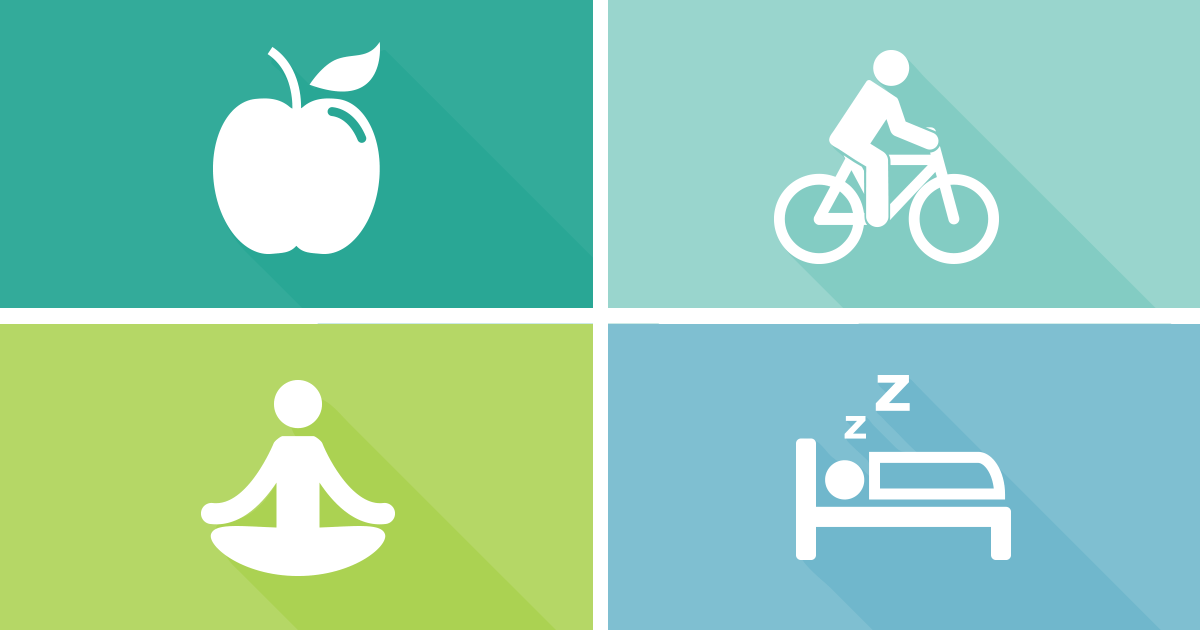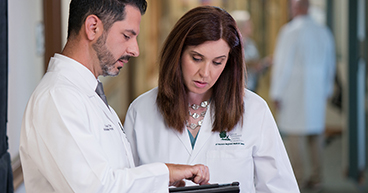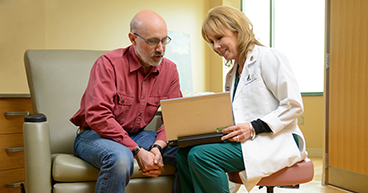
The diagnosis came on January 26, 2007: stage 2A Hodgkin lymphoma. "People don't forget the dates," says Dr. Anthony Perre, Director of New Patient Intake & Vice Chief of Staff at Cancer Treatment Centers of America® (CTCA), Atlanta. In the blink of an eye, Dr. Perre went from a healthy small-town physician with a private practice to a cancer patient dealing with a life-changing diagnosis. He suddenly had a treatment plan to develop—chemotherapy followed by a month of radiation therapy. He had a practice to run, a family to consider and the accompanying wave of emotions that would ebb and crest like the daily tide. This is when Dr. Perre learned, by experience, about what he calls the four pillars of survivorship—a coping plan for life after cancer.
"When you look at people who have gone through cancer treatment, it's like having post-traumatic stress disorder," he says. "I don’t know if I have PTSD, but I can tell you it was overwhelmingly stressful." In the years that followed, even after he was told he had no signs of cancer, Dr. Perre remained shaken by his diagnosis. Inspired by a survivorship seminar he attended, he began to build a new foundation for his life, supported by four pillars: diet, exercise, sleep and mindfulness. "The control that people are used to having over their lives is suddenly gone during a cancer battle," Dr. Perre says. "These pillars are four things that you do have control over. They became part of a routine for my well-being."
The four pillars support a healthy lifestyle designed to not only improve quality of life, but to help reduce the risk of a recurrent or second cancer. "The desire of survivorship is not only to survive your cancer, but to live well,” he says. “What you do today influences your ability to meet that goal."
Diet
Before his diagnosis, Dr. Perre's diet was a bit of a carnivore. "It would be nothing for me to eat a steak or hamburger almost every day," he says. Today, Dr. Perre takes a page from multiple studies that conclude a diet of healthy recipes that include fresh fruits, vegetables, lean meat, fish and whole grains may help reduce cancer risk. "There's concrete data out there that shows that what you eat makes a difference," Dr. Perre says. "We're also finding out that alcohol and red meat and flaming our meat may add additional risk. I eat much more lean meat—chicken and fish."
Exercise
"I would say I was a sporadic exerciser," Dr. Perre says. "I'd get the fitness bug, and then I'd fall off." Now he runs marathons. Inspired by his wife, who took up running as a stress reliever, Dr. Perre completed a 5K, then a half marathon, then a full marathon. "My wife and I use it as something to bond over, to do something we both enjoy,” he says. “I try to run at least three, four days a week." Exercise, be it running, weights or some other activity, helps reduce stress, improve immune function and build muscle and bone mass. It also may reduce your risk of 13 types of cancer. "The current recommendations are that a cancer survivor should do aerobic activity for at least 150 minutes each week," Dr. Perre says.
Sleep
"There's a lot we don't know about sleep," Dr. Perre says. But what we do know, he says, is that restful sleep has restorative powers that may boost your immune system and energy levels. Poor sleep has been linked to an increase in cancer risk and recurrence. For instance, a 2015 study published in the Journal of Sleep and Sleep Disorders Research suggests lack of restful sleep may lead to poor prognoses for some women with breast cancer. "Women with breast cancer who were frequent snorers and reported less than six hours of sleep per night had the poorest prognosis vs. never-snorers who slept seven to eight hours per night," the study says.
Mindfulness
Dr. Perre's tests and scans have shown no sign of cancer for years now. But every year, a little “scanxiety” sets in. "It's the anxiety you have around the time of your scans," he says. So Dr. Perre practices mindfulness to help reduce his stress and look at life through a more positive lens.
Mindfulness means different things to different people. In general, though, it's a way of letting go of your anxieties and finding peace within yourself. "Some people are into yoga, meditation," Dr. Perre says. "I choose exercise. I am also a religious man, so the grace of God is very important to me." Since his diagnosis, Dr. Perre says he has taken advantage of opportunities to travel. He goes to the beach on summer weekends and tries to enjoy life. "Outlook makes a difference. What affects our quality of life? How do we approach things, and how do we manage bumps along the way? What's really important? Don’t sweat the little stuff. Once you've been there and back, you realize we're all day to day."



